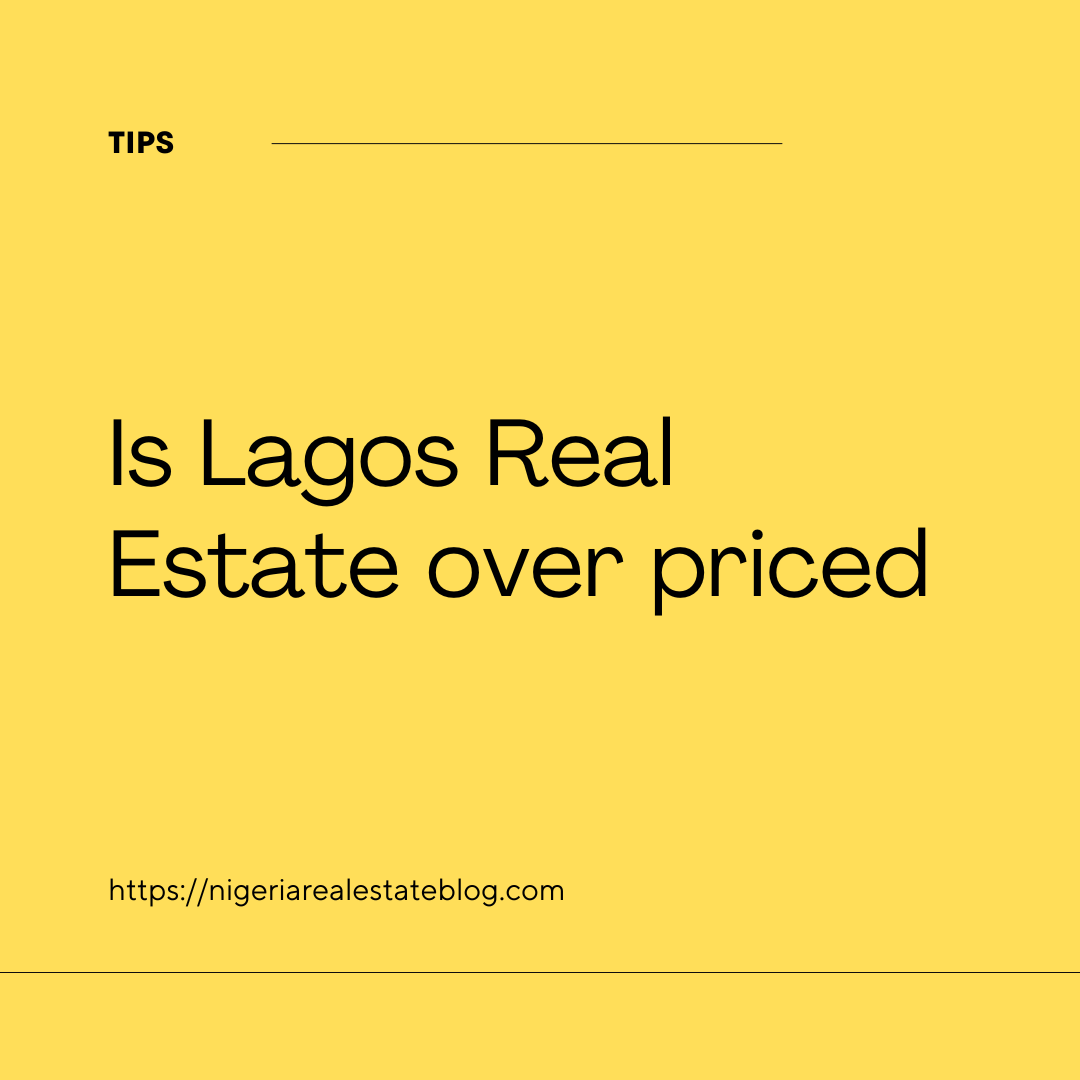
Is Lagos Real Estate over priced
The Lagos real estate market is generally considered to be one of the most expensive in Nigeria, and many people do perceive it as overpriced. The high demand for property in Lagos, combined with limited supply, has resulted in high property prices in many areas of the city.
However, it is worth noting that the Lagos real estate market is diverse, and prices can vary significantly depending on the location, type of property, and other factors such as age and condition of the property. Some areas of Lagos may be considered more affordable than others, and there are also opportunities for buyers to negotiate prices with sellers.
Additionally, the Lagos real estate market is influenced by a range of factors beyond just supply and demand, including government policies, economic conditions, and investor sentiment. As such, it is difficult to make a blanket statement about whether Lagos real estate is overpriced without considering these broader contextual factors.
Ultimately, whether or not Lagos real estate is overpriced is subjective and depends on individual perspectives and circumstances. It is advisable for potential buyers to do their research, consult with real estate professionals, and weigh their options carefully before making any significant investment decisions.
There are several factors that contribute to the high prices of real estate in Lagos, which can be attributed to both demand and supply-side factors.
On the demand side, Lagos is the most populous city in Nigeria and the economic hub of the country, with a high concentration of businesses, industries, and job opportunities. This has resulted in a significant influx of people into the city, creating a high demand for housing and other real estate properties. The high demand has driven up prices, as developers and property owners seek to maximize profits.
On the supply side, Lagos is geographically constrained, with limited available land for development. This has resulted in a scarcity of available land, which has driven up land prices and made it more expensive for developers to acquire and build new properties. Additionally, the cost of building materials and labor is relatively high in Lagos, which further drives up the cost of constructing new properties.
Government policies and regulations also contribute to the high prices of real estate in Lagos. For example, high taxes and fees imposed on property transactions, as well as complex and time-consuming bureaucratic processes, can increase the cost of buying and selling property. These factors, combined with the high demand and limited supply, contribute to the perception that Lagos real estate is overpriced.


